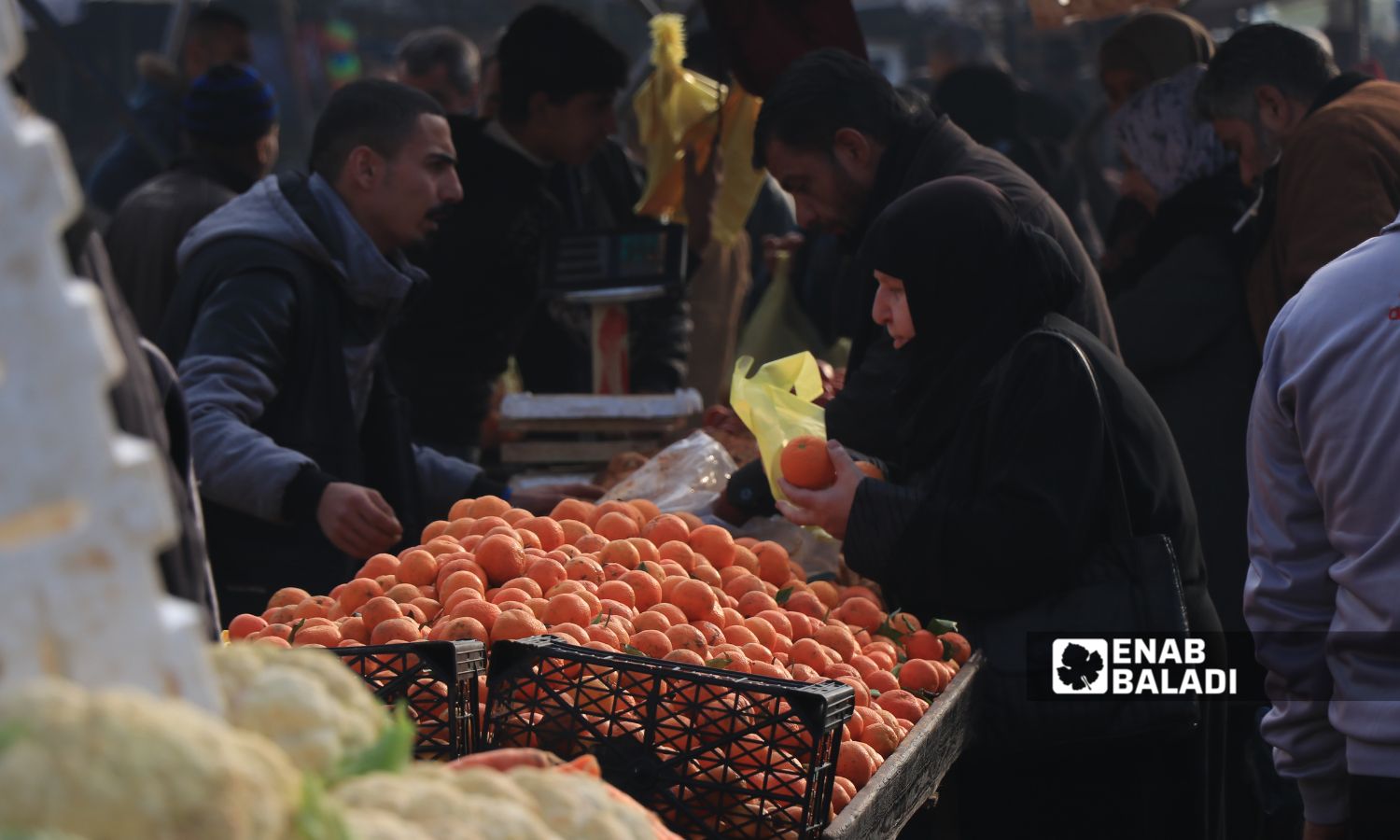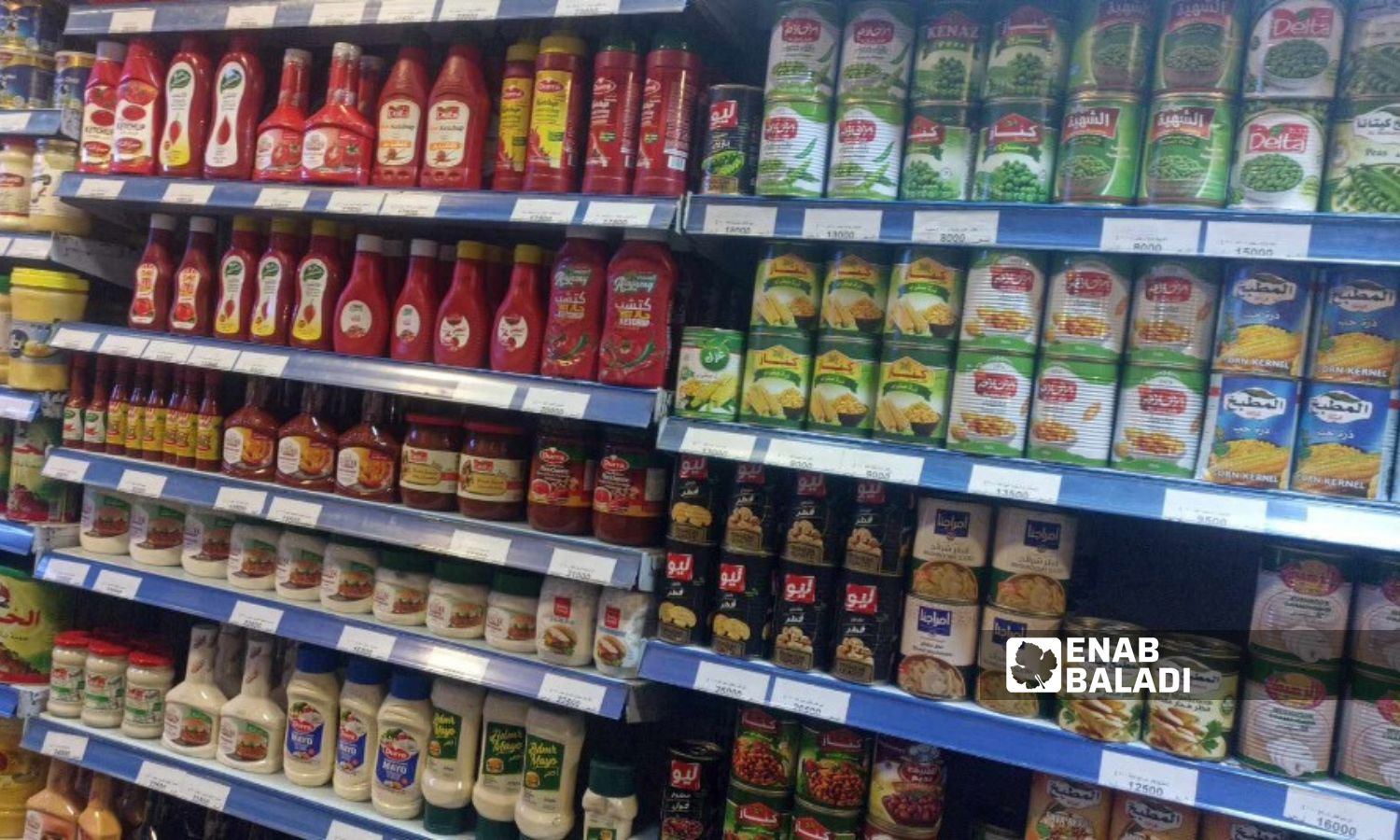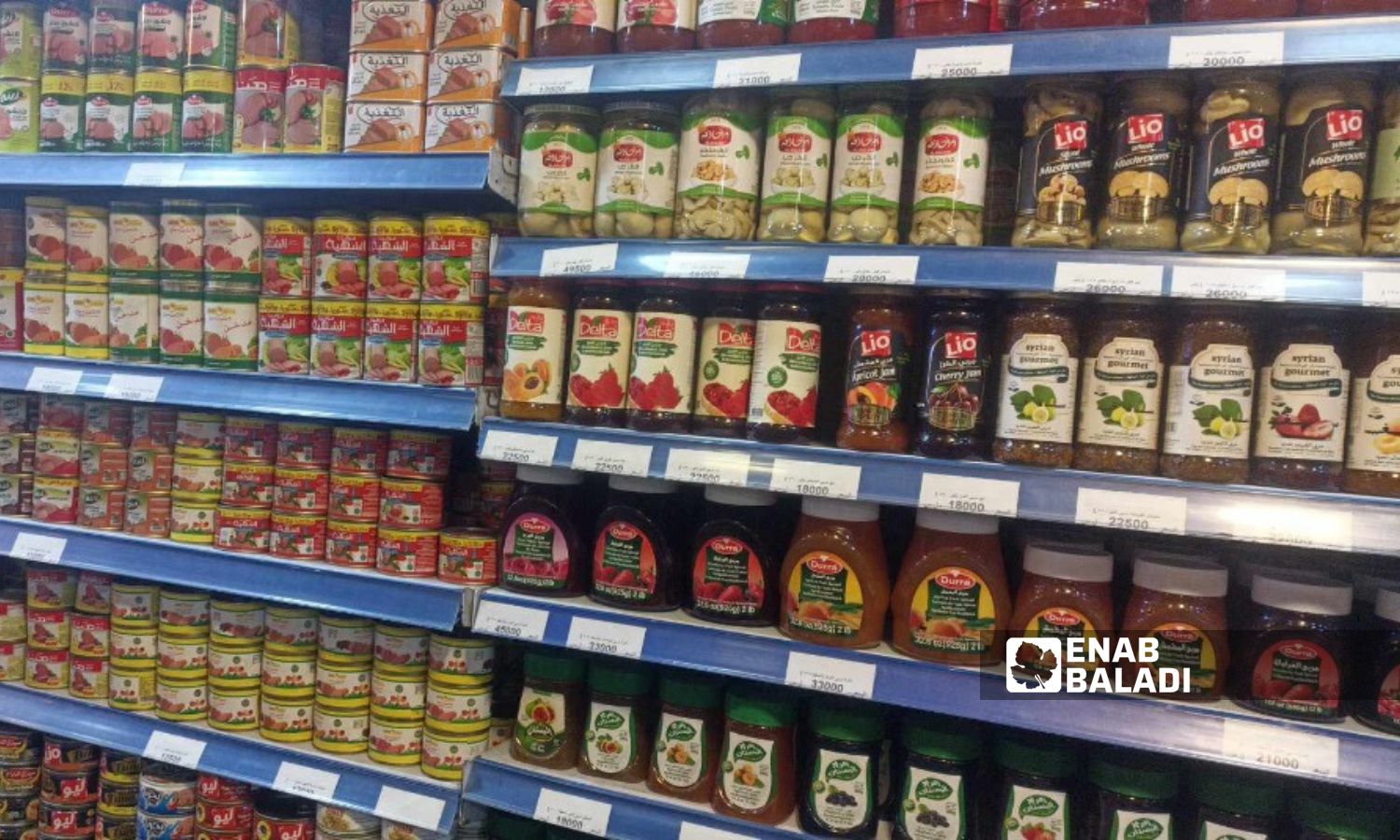
Prices of goods in the markets of Aleppo city have dropped, particularly for food items, vegetables, and fruits.
The prices were automatically affected by the improvement in the value of the Syrian pound against the US dollar. While the exchange rate for the dollar was around 40,000 pounds in the early days after the regime forces left the city (November 30) and battles intensified in the Hama countryside, it has dropped in all Syrian regions to 13,200 pounds.
Another factor contributing to the decline in prices was the influx of large quantities of various types of Turkish goods at lower prices, which also led to a decrease in the prices of local products.
According to Enab Baladi‘s correspondent in Aleppo, the price of a liter of vegetable oil has decreased from 28,000 Syrian pounds to about 19,000 – 22,000 pounds, noting that the price exceeded 70,000 pounds in the initial days after the city’s liberation.
The price of a kilogram of sugar fell from 13,000 to 8,000 pounds, and the price of a kilogram of Egyptian rice dropped from 16,000 to 10,500 pounds.
As for the price of eggs, which is a staple component of Syrian meals, it has decreased to 25,000 pounds for a carton (30 eggs), after exceeding 75,000 pounds a month ago.

Food prices in Aleppo have decreased due to the improvement in the value of the Syrian pound and the influx of Turkish goods – December 27, 2024 (Enab Baladi/Muhammad al-Ali)
Meat prices have also declined, with the price of a kilogram of lamb dropping from 160,000 pounds to 110,000 pounds, and the price of boneless chicken breast from 60,000 pounds to 43,000 pounds, which has also reflected on the prices of ready-made meals in general.
On the other hand, prices of vegetables and fruits have declined due to the plentiful supplies entering the Aleppo markets, influenced by the removal of additional transportation costs imposed by the previous regime’s checkpoints.
The price of a kilogram of potatoes has fallen from 9,000 pounds to 4,000 pounds, the price of a kilogram of eggplant from 12,000 pounds to 7,000 pounds, and tomatoes from 9,000 pounds to 7,000 pounds.
The decline included prices of fruits of all kinds, especially bananas, which saw the most significant decrease from 30,000 pounds to below 13,000 pounds per kilogram.
Meanwhile, Turkish chestnuts have appeared in the markets at a price ranging between 30,000 and 35,000 pounds per kilogram.

The prices of goods in Aleppo have fallen due to the improvement in the value of the Syrian pound – December 27, 2024 (Enab Baladi/Muhammad al-Ali)
The opening of roads between Aleppo and its countryside, extending to Idlib, has facilitated the import of various Turkish goods into the markets of Aleppo coming from the city of Sarmada, which has become a destination for Aleppo residents to purchase necessities at lower prices, and a source for bulk goods to be sold in the city, where stalls for selling various types of Turkish biscuits and chocolates have become widespread at prices ranging between 2,000 and 3,000 pounds per piece.
The overall economic situation remains ambiguous at the current stage, but factors such as the improvement in the value of the pound against the dollar, the prevailing ease of transporting and selling goods without obstacles, and talk of an impending increase in salaries for public sector employees have led many to expect improvements in living conditions, especially with the market recovery and improved buying and selling activity due to the decline in prices.
The post Goods prices drop in Aleppo markets appeared first on Enab Baladi.